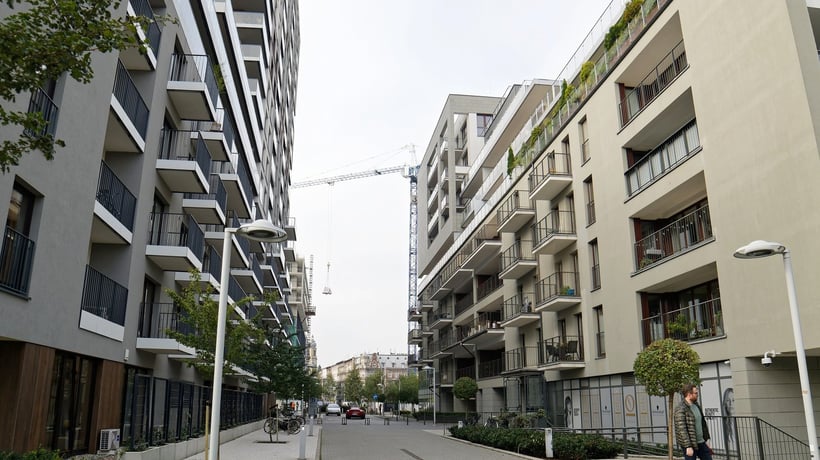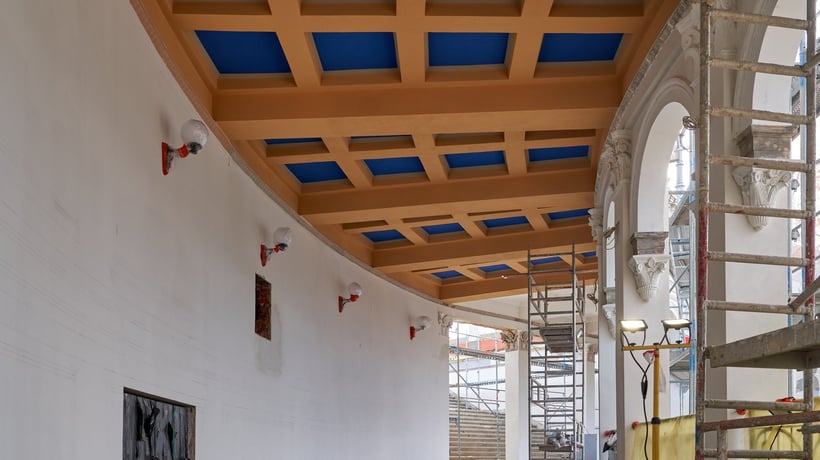Wroclaw Social Diagnosis was prepared by a team of researchers from the Institute of Sociology at the University of Wroclaw under the supervision of Professor Stanisław Kłopot. The study was conducted in 2014 and involved two thousand people between 15 and 80 years of age who had been living in Wroclaw for at least half a year. The first edition of Wroclaw Social Diagnosis was published in 2010, but it was not as extensive in scope as that of 2014. The latest edition focused on households, families and the city. The most intriguing findings will be published on a regular basis.
Tomasz Wysocki: “Over 45% of the residents of Wroclaw are in touch with no more than three neighbours, but as many as 8.9% admit to having no neighbourly relations. This is sad, we tend to avoid people from our immediate environment.”
Associate Professor Katarzyna Kajdanek, a sociologist from the University of Wroclaw: “This is sad, I admit. Because it shows that people are barely in touch with other people in their immediate environment. They hardly exchange greetings, let alone the visits.”
Why neighbourly ties are growing weaker?
“Because we tend to seek people who share our life style. We look for people who have similar interests instead of spending time with people who live nearby.
This absence of social relations is different for each social group, age or education. Elderly people are much more attached to their immediate neighbourhood than young people. Young people are more mobile and they build their contact network outside of their place of residence. When they seek people to hang out with they choose those with similar hobbies or interests. This is facilitated by modern technology, mobile solutions and social networks. For elderly people, their leisure time and making new friends is usually restricted to their place of residence. They speak to their greengrocer, to people they go to church with, their closer neighbour. Their neighbourhood is limited to their parish.”

Source: Wroclaw Social Diagnosis
What other factors affect these poor neighbourly relations?
“People with university degrees or higher social status tend to detach from their neighbours. They prefer people from the same profession and of similar economic background.
Your subjective sense of social status reflects who you believe you are socially: whether you think you are higher than others, at the same level or lower than others. Doctors, that is, people with a university degree, with a well-paid job and a highly acclaimed profession would probably qualify as higher social strata.
I think people with a higher social status believe they can obtain any type of help without entering into a relationship with people from their neighbourhood. The currency they use to buy objects or services is money. They prefer not to have any trust in their neighbours or return their favours. These individuals are very much akin to young people in that they usually have a wide contact network that is based on choice. Just like young people, they also like their freedom of choice when meeting new acquaintances. In other words, sometimes they prefer to pay a security company rather than ask their neighbour to have a look at their house and garden while they are away.
The higher the social status, the more individualistic they are, and the more likely they tend to detach themselves from their neighbours. These individuals believe they can manage on their own, regardless of the circumstances. They do not need any contact network in their immediate environment. For people with a higher social status, freedom and individualism are more important than their neighbours. In affluent and prestigious estates, people who live close by become friends. It is like an implosion that creates a social circle that has little to do with a neighbourhood. These are two different types of relations.”

Source: Wroclaw Social Diagnosis
"This can be related to a wider phenomenon, which is also known as a neoliberal turn in urban development. This implies a whole new way of thinking about the city. It is often said that closed housing estates are developed because people want to emphasise prestige, they want to maintain it. However, they are also driven by fear. In my opinion, neither of the two explanations is sufficient in Poland. This tendency to put up fences around you is because people have lost confidence in their local authorities, who cannot bring back a sense of safety in their neighbourhoods. People share a feeling that basic services are no longer provided by the state, e.g. waste receptacles are always damaged, their staircases are always dirty. In a word, the system does not work anymore. The residents are then more likely to make decisions such as this: “Let's put up fences around us. Let's make our space more private. Let's hire a company. We can't rely on the state and local authorities any more. We will get the same services and a better quality in the marketplace”. So, it is not only due to technology or affluence, but also because of change in thinking that affects urban space, neighbourhoods and your local area."
Wroclaw Social Diagnosis: 55% of the participants failed to take up any kind of activity to benefit their neighbourhood, 33% reported weak activity, and 15% mediocre or high activity (at least three activities in a year).What would persuade you to make a difference to your neighbourhood?

Source: Wroclaw Social Diagnosis
Closed housing estates are typically Polish in a sense. They are far more difficult to find in Germany.
"I am wondering what causes the phenomenon. For instance, this might be due to a trauma of political and economic transformation that Polish society is yet to work through. These problems are caused by our failure to define ourselves as class society. Although difficult to grasp, the division between serfs and gentry, mill owners and labourers still exists in Polish society. We should apply sensitive cultural, historical and sociological analysis to the phenomenon. Similar tools might be used to explain why I am in touch with some of the neighbours, and which neighbours I find dear to me."








